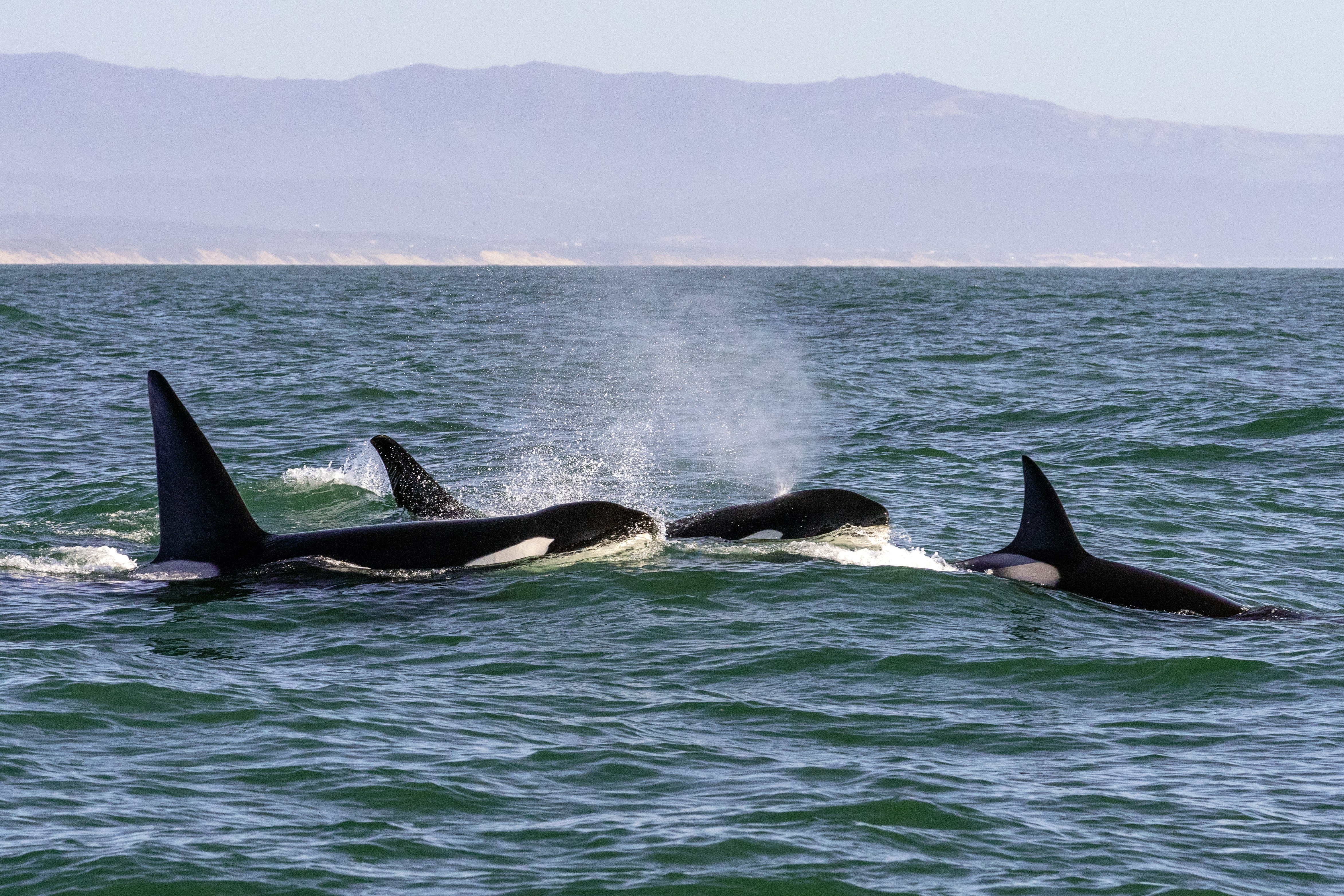Killer whales have complex social circles and close friends just like humans, drone study finds
Researchers were ‘amazed’ to see how much contact there is between the animals, as Leonie Chao-Fong reports

Killer whales have complex social circles that include close friendships, a new study shows.
Researchers have discovered that orcas spend more time interacting with certain other individual whales in their pod and tend to favour those of the same sex and similar age.
The project, led by the University of Exeter and the Centre for Whale Research (CWR), used drones to film the animals in the water.
Based on 651 minutes of video filmed over 10 days, the researchers were able to observe the whales’ social activities and patterns of contact.
Lead author Dr Michael Weiss, of the University of Exeter, compared the findings to human behaviour. He said: “Until now, research on killer whale social networks has relied on seeing the whales when they surface, and recording which whales are together.
“However, because resident killer whales stay in the social groups into which they’re born, how closely related whales are seemed to be the only thing that explained their social structure. Looking down into the water from a drone allowed us to see details such as contact between individual whales.
“Our findings show that, even within these tight-knit groups, whales prefer to interact with specific individuals. It’s like when your mum takes you to a party as a kid - you didn’t choose the party, but you can still choose who to hang out with once you’re there.”
By looking at patterns of physical contact, researchers concluded that younger whales and females play a central social role in the group. The older the whale, the less central of a role they had.
While the drone project was the result of a crowd-funding campaign supported by members of the public, the study’s findings were built on more than four decades of data collected by CWR on southern resident killer whales, a critically endangered population in the Pacific Ocean.
Professor Darren Croft, of Exeter’s Centre for Research in Animal Behaviour, said: “By adding drones to our toolkit, we have been able to dive into the social lives of these animals as never before.
“We were amazed to see how much contact there is between whales - how tactile they are. In many species, including humans, physical contact tends to be a soothing, stress-relieving activity that reinforces social connection.
“We also examined occasions when whales surfaced together - as acting in unison is a sign of social ties in many species. We found fascinating parallels between the behaviour of whales and other mammals, and we are excited about the next stages of this research.”



Join our commenting forum
Join thought-provoking conversations, follow other Independent readers and see their replies
Comments